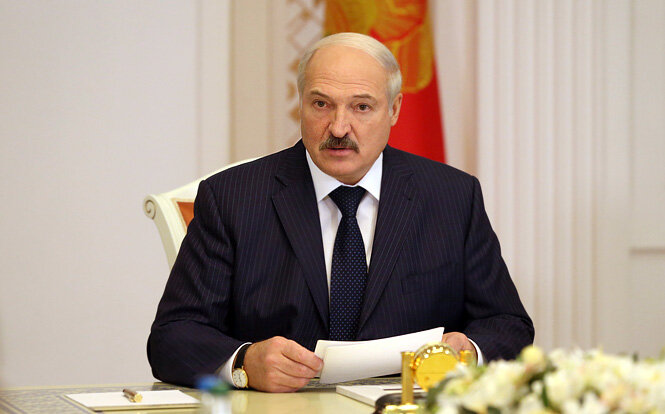Government conference on improving measures on preventing social dependency
- 1
Belarus president decree No. 3 “On preventing social dependency” of 2 April 2015 will remain in effect but the detected drawbacks will be fixed. The improvement of the relevant measures was discussed during the government conference held by Belarus President Aleksandr Lukashenko on 6 December.
The President remarked that Belarusians had dubbed the document as a decree against freeloaders. “There may be something to it. We are not going to argue with the people,” he said. “The decree was meant to eradicate a most complicated problem — social dependency. We expected to resolve the problem by encouraging employable citizens, who can and should work, to embrace a legal working career and honor their constitutional requirement to participate in the financing of state expenses.”
Aleksandr Lukashenko reminded about his instruction to closely monitor the enforcement of the decree in practice and the processes in this sphere. “Proposals bordering on scrapping the decree altogether were made because the decree faced a lot of criticism, it was difficult to administrate and there were many other issues,” stated the President.
These matters were regularly discussed when Marianna Shchetkina worked as the Belarusian labor and social protection minister and delivered her reports to the head of state. “Back then I said that regardless of what was said about the decree it was necessary to live and work with it for some time in order to make additional decisions. It’s been more than a year since then. We can now see more or less clearly what the decree has produced, what positive sides the document has. Are there some shortcomings? Well, let’s fix them,” said the head of state.
The President underlined that he was most concerned not about the fact that the citizens the decree applies to get certain free services or preferences. “I am most of all concerned about the general public’s attitude to loiterers. People, who can work, who have no disabilities, whose capabilities are not limited, should work, earn his or her living and provide for their families in addition to benefiting the country by paying taxes,” said Aleksandr Lukashenko.

The head of state suggested finding out what problems had been unearthed in the course of implementing the decree. Aleksandr Lukashenko said he would like to know whether freeloading practices have been stopped and whether the mechanism has an effect on the people, who are unwilling to work or work off the books. The President also wondered how the decree is put into practice, whether the lists of those, who are supposed to pay this tax, are compiled in a quality and accurate manner. “I am told that notifications to pay the tax are often sent to the citizens, who are not supposed to pay it and should not have been requested to pay it by government agencies. Such people include university students, women on maternity leaves, and even active-service soldiers,” remarked the head of state.
“Some shortcomings are always bound to appear in this situation. It is most important for us to see these shortcomings and address them in time,” stressed the Belarusian leader.
Aleksandr Lukashenko also said he wanted to hear how the government had fulfilled his instruction to create a sufficient number of jobs for the unemployed. He was also interested in the unemployment levels in every region of the country.
Deputy Prime Minister Natalya Kochanova said that the government had monitored the decree’s implementation together with the Belarus President Administration. The results indicate that the decree was topical, necessary, and objective. The decree has a positive effect on employment figures and encourages able-bodied Belarusian to work legally.
Certain innovations were worked out during the government conference and will be introduced as amendments into the decree. They are primarily related to difficult life situations. Municipal government agencies will be given the right to decide whether citizens suffering from unforeseen life situations should be exempted from this tax. The right will be granted to municipal councils of deputies and municipal executive bodies. The decision-making process will be overseen by the heads of regional administrations.
The categories of people exempt from paying the tax will be expanded. For instance, the categories will include unarmed-service military personnel and athletes, who are registered as part of national sport teams and do not receive any income.
Apart from that, for the purposes of collecting the social dependency tax the full amount of income tax paid by natural persons will be calculated to prevent wrongful tax calculations due to tax deductions, for instance, when state subsidies are granted for home construction purposes or education.
The dates for sending out tax payment notifications and for paying the tax for the year 2015 will be changed to 20 January and 20 February 2017 respectively. It has been done because the available database of the social dependency tax payers has to be updated.
